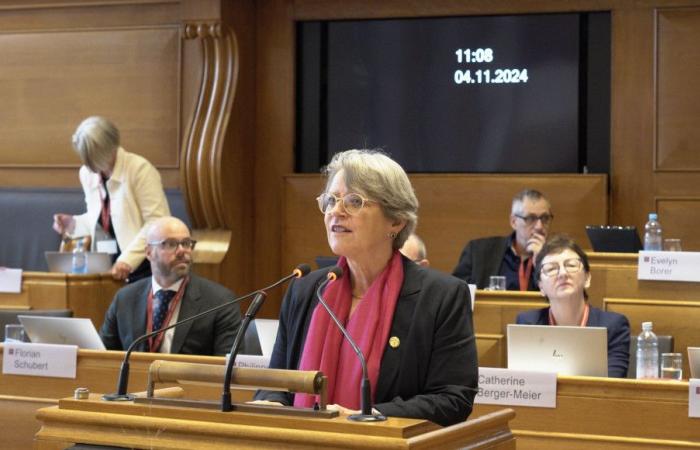The highlighting of abuses committed within the Reformed Churches is still pending. At the Evangelical Reformed Church of Switzerland (EERS), their umbrella organization, a major internal study project was proposed last June, which was rejected. In order to carry out this study, the EERS prefers to rely on the Confederation, which could provide insight through a global survey of society. Without a favorable signal from the State at the moment, a working group was recently created, under the banner “Protection of personal integrity”. Made up of victims, associations of victims of abuse in a religious environment and Reformed leaders, this group, presented last week in Bern during the EERS synod, must, among other tasks, reflect on the feasibility of a study. Update with Pastor Rita Famos, president of the Reformed Evangelical Church of Switzerland.
During the summer synod held in Neuchâtel, it was decided not to launch an internal investigation, but to leave it to the Confederation. Have you had contact with the State? And what came out of it?
Two decisions were made. The first is that the Evangelical Reformed Church of Switzerland must commit itself at the national level to a study on the scale of society. The second consists of the creation of a working group responsible for examining what internal study could be judicious for our Church. We are pursuing these two approaches in parallel. The “Protection of Personal Integrity” working group is currently examining whether and, if so, what type of study could best support efforts to prevent and highlight abuses committed in our Churches.
Is there still a possibility that a global survey of society, carried out by the State, could produce results concerning the Churches?
At the federal level, I have already conducted several interviews and I am confident that our suggestions will be heard and implemented. However, this would also mean, in the best case scenario, that we should not expect a concrete study before the next two years.
This group must also consider the development of victim protection systems. Wouldn’t it have been easier to work with the results of a study carried out upstream?
Of course, the results of a study can help to adjust existing standards in the field of protection and prevention and to improve them in a targeted manner. However, it is crucial that protection systems do not wait for the results of such a study, but are already implemented consistently. The safety and protection of those affected is a top priority for us, and numerous protection concepts and prevention measures have already been implemented in our churches or are being continually developed. Our objective is to best guarantee the protection of victims and prevention, while at the same time examining how a study can help us in the long term.
When will we be able to count on the results of this working group?
I hope that we can present a concrete proposal on the feasibility and design of the study at the 2025 Fall Synod, a year from now. The working group must show whether an internal study is necessary or whether other processes are more appropriate. Until then, this group, which also includes victims’ groups, will work intensively to ensure that the study best takes into account the needs and concerns of those affected, as well as those of the churches.
Is it possible that the EERS, whose Council, which you chair, had set up a whole study project, ultimately did not carry out any?
As I said, we must first wait for the results of the working group.






